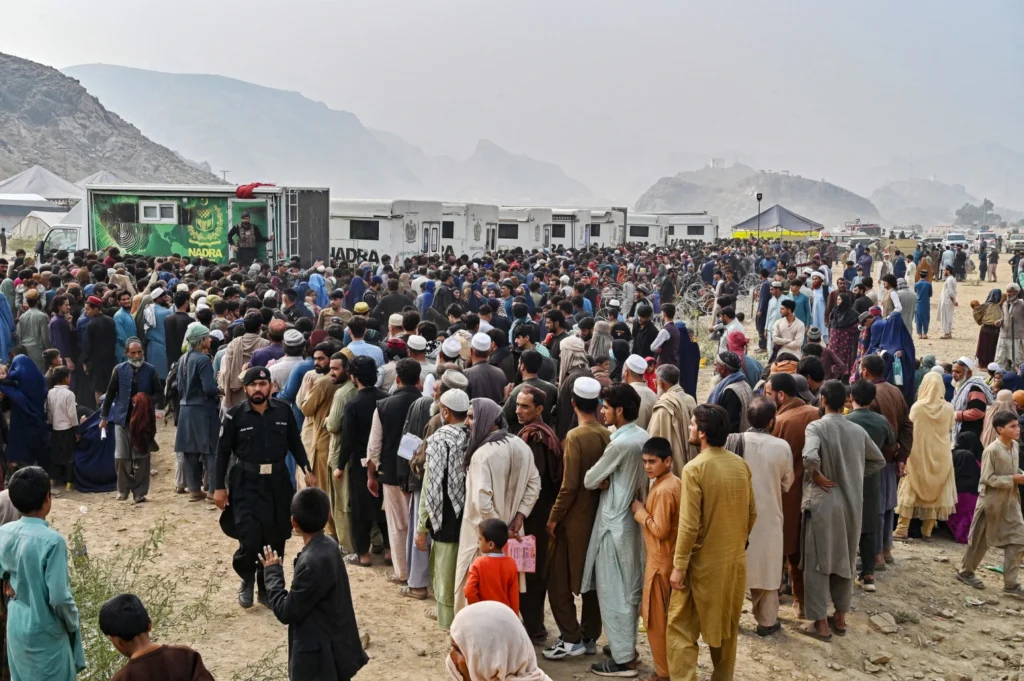- Web
- Yesterday
Repatriation begins from Sept 1 as Pakistan takes final decision on registered Afghans
-

- Tahir Khan
- Aug 05, 2025

ISLAMABAD: An era of nearly 45-years of Afghan refugees finding home in Pakistan is now nearing its final end. The third and final phase of repatriation/deportation of Afghan refugees will start from September 1, 2025 according to a notification by Ministry of Interior.
Currently, Pakistan hosts 1.4 million Afghans, who hold Proof of Registration (PoR) cards, according to the UN refugee agency. The validity of the PoR cards expired on June 30 which is why the cards are being deemed as illegal and their holders, illegal foreigners. These remaining Afghans are those whose second and third generation have lived in Pakistan, and cannot fathom Afghanistan as their new home.
The Interior Ministry’s notification dated Aug 4, 2025, stated that the decision to repatriate/deport was taken in a meeting held on the same day, to discuss repatriation of PoR card holders.
“With reference to the subject cited above and the meeting held in the Ministry of Interior and Narcotics Control, Islamabad on 1st August 2025, the undersigned is directed to convey the decision that Afghan nationals holding Proof of Registration (PoR) cards shall be repatriated to Afghanistan as part of the ongoing implementation of the Illegal Foreigners Repatriation Plan (IFRP),” the notification read.


Majority of the PoR card holders have been living in Pakistan since early 1980s, following the invasion of Afghanistan by the erstwhile Soviet Union.
“It has been decided that the voluntary return of PoR card holders shall commence forthwith, while the formal repatriation and deportation process will take effect from 1st September 2025. Further, it is also emphasized that the repatriation of illegal foreign nationals, including Afghan Citizen Card (ACC) holders, will continue as per the earlier decision under the IFRP,” the notification further said.
Int’l, Afghan groups urge Pakistan to stop deportation of Afghans
A UNHCR spokesman said senior officials of the UN refugee agency are expected to meet in its headquarters and issue a statement on Pakistan’s decision, most likely later on Tuesday. The agency has already issued a statement, showing concerns at the PoR decision and insisted that more time should be given for repatriation.
The repatriation of Afghans began after the caretaker government of Prime Minister Anwar-ul-Kakar announced a policy defining IFRP. Although the government insisted on a policy for all illegal foreigners, the main purpose was to send back Afghans. Afghans have demanded of the Pakistani government to give them more time so they can wind up their business, investment and assets.
Taliban deny arresting or monitoring Afghans after UK data leak
“Majority of the PoR card holders have been living in Pakistan since long. So one-month time is too less for them to pack up,” a refugee representative Arshad Jan Ayubi told Hum News English.
The Interior Ministry’s meeting chalked out a comprehensive plan for the repatriation process and asked the relevant institutions and provinces to comply with the directions and to carry out the repatriation process in a smooth and organized manner.
The Ministry of Foreign Affairs shall engage with Afghan government, UNHCR and international communities while Ministry of Kashmir Affairs, GB & SAFRON shall provide a database of PoR cards to respective provincial, divisional & district committees.
NADRA would be required make arrangements for deregistration of returnees at transit areas and Border Terminals along with requisite capacitation at Border Terminals while FIA shall facilitate repatriation at the nominated border crossings along with requisite capacitation at Border Terminals.
Nearly 450,000 Afghans left Iran since June 1: IOM
All provincial governments and relevant agencies must ensure mapping of all PoR card Holders, devise provincial Action Plans and share with the Ministry of Interior. Designate transit areas for the stay of the deportees should be specified and arrangements be made for the transportation of the deportees and the financial requirements. Similarly all provinces have been directed to operationalise the provincial, divisional and district level implementation committees to review and suggest adjustments in the repatriation process. Reactivation of control rooms at Provincial level while Control rooms at federal level be activated in the NCIMС and NCIMC shall establish a complaint redressal cell with a hotline for redressing the grievances related to the repatriation process.
All stakeholders shall ensure that the repatriation process is implemented in an organised manner without the possibility of any maltreatment or abuses, according to the notification. Monitoring of the progress of the repatriation process shall be made by Foreign Nationals Security Dashboard (FNSD) and daily progress report would be prepared by the FNSC.




